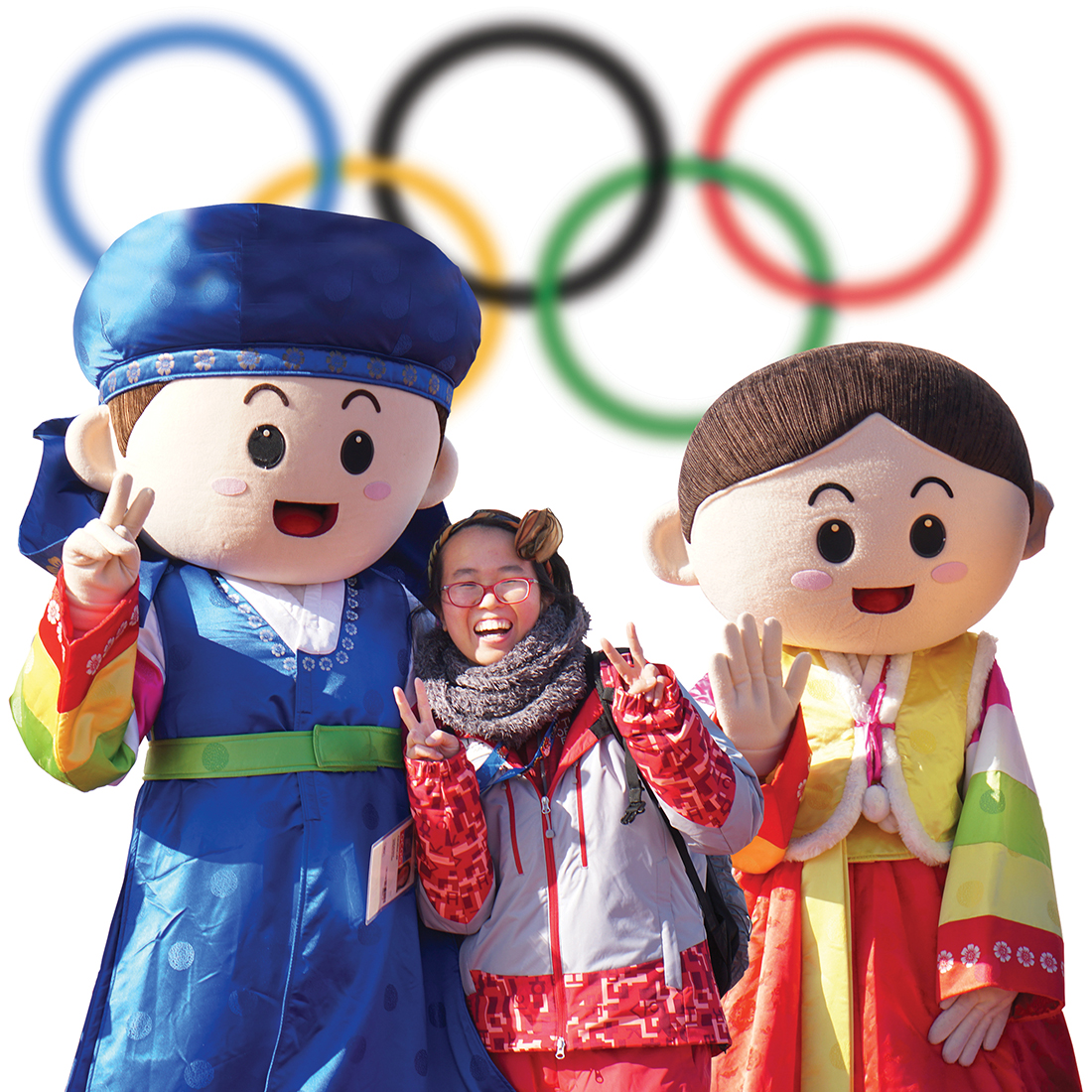 Caroline Lee BS’13 spent two months volunteering at the Olympic and Paralympic games in Pyeongchang, South Korea.
Caroline Lee BS’13 spent two months volunteering at the Olympic and Paralympic games in Pyeongchang, South Korea.
The 2018 Winter Olympics not only marked the pinnacle of sporting ambition for many participants, but it also represented the culmination of a lifelong dream for one Comet.
Caroline Lee BS’13, who graduated with a degree in psychology and a minor in gender studies, spent two months volunteering at the Olympic and Paralympic games in Pyeongchang, South Korea. She worked in the accreditation department, where she helped make ID badges for employees.
“I had the honor of helping people from six continents and all walks of life — former athletes, heads of government, bus drivers, university researchers, waitresses, journalists,” Lee said. “Talking to so many different types of people and learning about their lives was a great experience.”
Potential Olympic volunteers face stiff competition and overwhelming odds to win the coveted assignments. After an unsuccessful attempt at volunteering with the 2016 Summer Olympics in Rio de Janeiro, Lee knew that she would be one of tens of thousands of people applying for the 2018 Winter Olympics. After a second, nine-month application process, Lee was rewarded with a ticket to Pyeongchang.
“For the longest time, I couldn’t believe it,” Lee said. “Not even when I was in South Korea declaring chicken jerky to airport customs or on the bus to volunteer training. It wasn’t until I put on my silver and red volunteer uniform that this dream finally became real.”
Since graduating, Lee has worked as a teacher and is currently focused on her global volunteer work, teaching English and creating videos. She encourages others to learn from her experience at the games and realize any goal is within reach.
“We often dress our dreams up to be untouchable, but they are much more approachable and tangible than we think they are.”